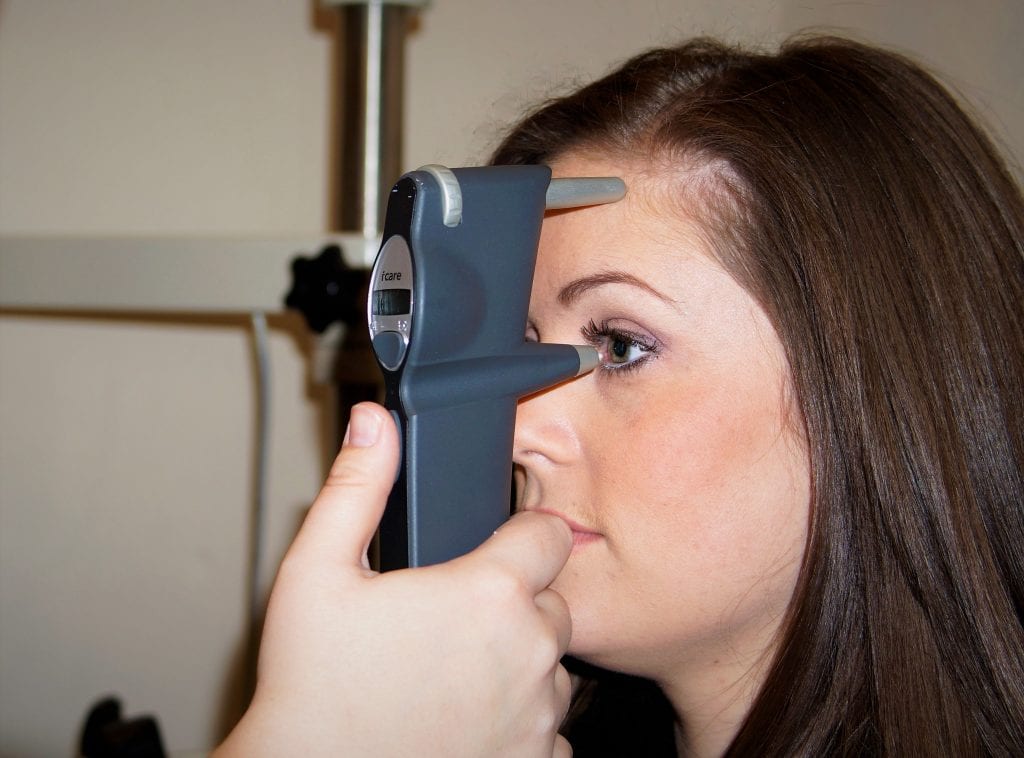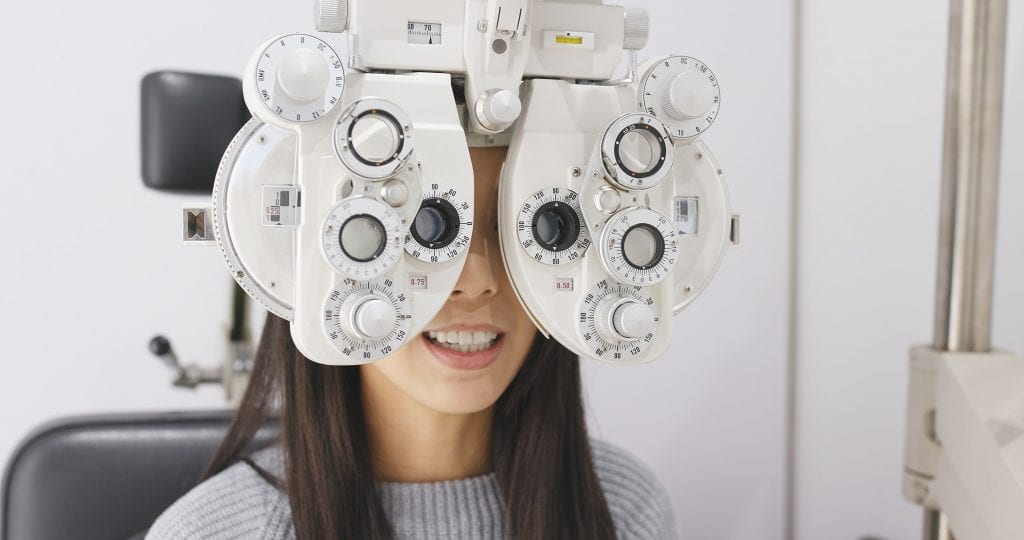SHOP DRY EYE CARE TODAY!
Use code VISIONARYEYE20 at checkout for 20% off!
Many people will experience a migraine from time to time. In fact, an estimated 1 billion people across the world suffer from migraines. However, the headaches and migraines that are associated with vision or cause vision problems, are rarely typical. If you’re prone to migraines and headaches that cause vision impairment or even vision loss, you may be suffering from an ocular migraine. You may be wondering “what is an ocular migraine?” and you’re not alone. They’re often misunderstood or misdiagnosed as a different type of headache or eye condition which leaves many confused about what issue they are being affected by.
Learn more about what an ocular migraine is below, along with noticeable symptoms, possible treatments, and prevention methods of this eye condition.
 What is an Ocular Migraine?
What is an Ocular Migraine?An ocular migraine is defined as being a rare condition that affects your vision in one eye. This type of migraine is characterized by temporary loss of vision or even blindness in just one eye, not both, and vision typically returns to normal within an hour. These migraines may be painless for some people or may be accompanied by pain from a migraine headache. Though ocular migraines often cause impaired vision in one eye, their effects may differ from patient to patient.
Ocular migraines are often confused with a much more common condition called migraine aura that usually affects both eyes rather than just one. It has been determined that ocular migraines are most likely caused by reduced blood flow or spasms of blood vessels behind the eye. Changes that occur across the nerve cells in the retina may also lead to an ocular migraine.
It’s important to note that regular migraine headaches can cause vision problems such as blind spots and flashes of light, which are not related to an ocular migraine. The biggest difference between the two conditions is that an ocular migraine causes vision loss in just one eye, while a regular migraine results in impaired vision in both eyes. When visiting your Reno optometrist, the doctor will first begin ruling out conditions that present similar symptoms to ocular migraines. These may include:
There are several telling symptoms of an ocular migraine, however, these can sometimes be difficult to determine on your own. Fortunately, a qualified, licensed optometrist can help you better assess your symptoms and provide appropriate care in return. Be sure to observe symptoms such as:

Because of the transience of this condition, treatment is often not necessary during the time of the occurrence. The vision loss that you experience should subside within an hour, but it is important to take a few precautionary measures to prevent further injury or discomfort during an episode. Once you notice the vision loss, you should stop whatever you’re doing and rest your eyes until your vision appears normal. If your vision problems are accompanied by a headache, take an over-the-counter pain reliever to help alleviate the discomfort.
Other methods of treatment may include medications or medical devices that are intended to limit or prevent the ocular migraines from happening altogether. Medications that are commonly prescribed to treat epilepsy have proven to be an effective treatment for ocular migraines. These include valproic acid and topiramate. Other medications that may be effective are CGRP inhibitors, blood pressure medicines (such as beta-blockers), and tricyclic antidepressants.
Fortunately, there are some simple lifestyle changes you can take to prevent an oncoming ocular migraine that have proven to be quite effective. Like traditional migraines, ocular migraines can be triggered by a number of different factors. To prevent a debilitating ocular migraine from occurring, try to avoid the following to the best of your ability:
 Visit Your Reno Optometrist
Visit Your Reno Optometrist Ocular migraines are quite rare, and the symptoms are often caused by other underlying problems. To determine the true source of your complications, be sure to meet with the Reno optometrists at Visionary Eye Center. Their team of dedicated, professional optical specialists will be able to help you with your vision problems and provide effective solutions and care to help you feel better. Connect with the experts at Visionary Eye Center today!
 775.587.3892info@visionaryeyecenter.com8175 South Virginia Street Suite B-900
775.587.3892info@visionaryeyecenter.com8175 South Virginia Street Suite B-900